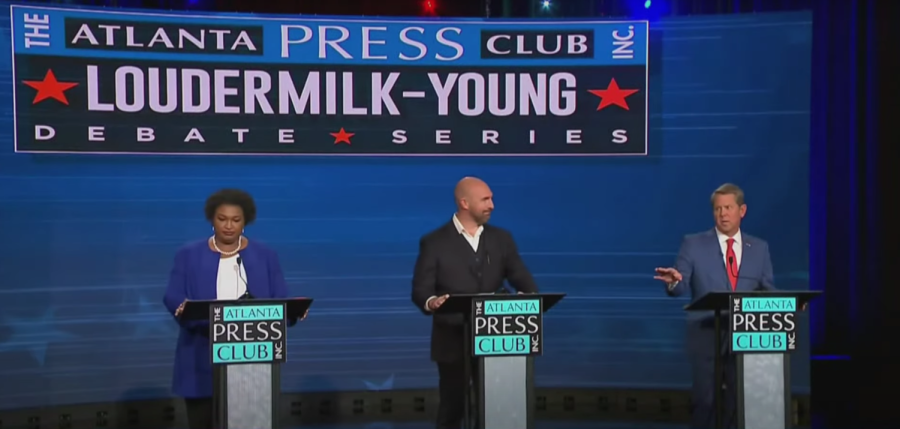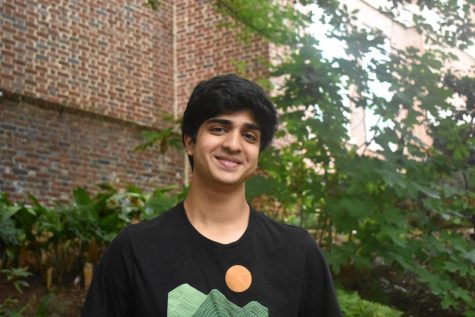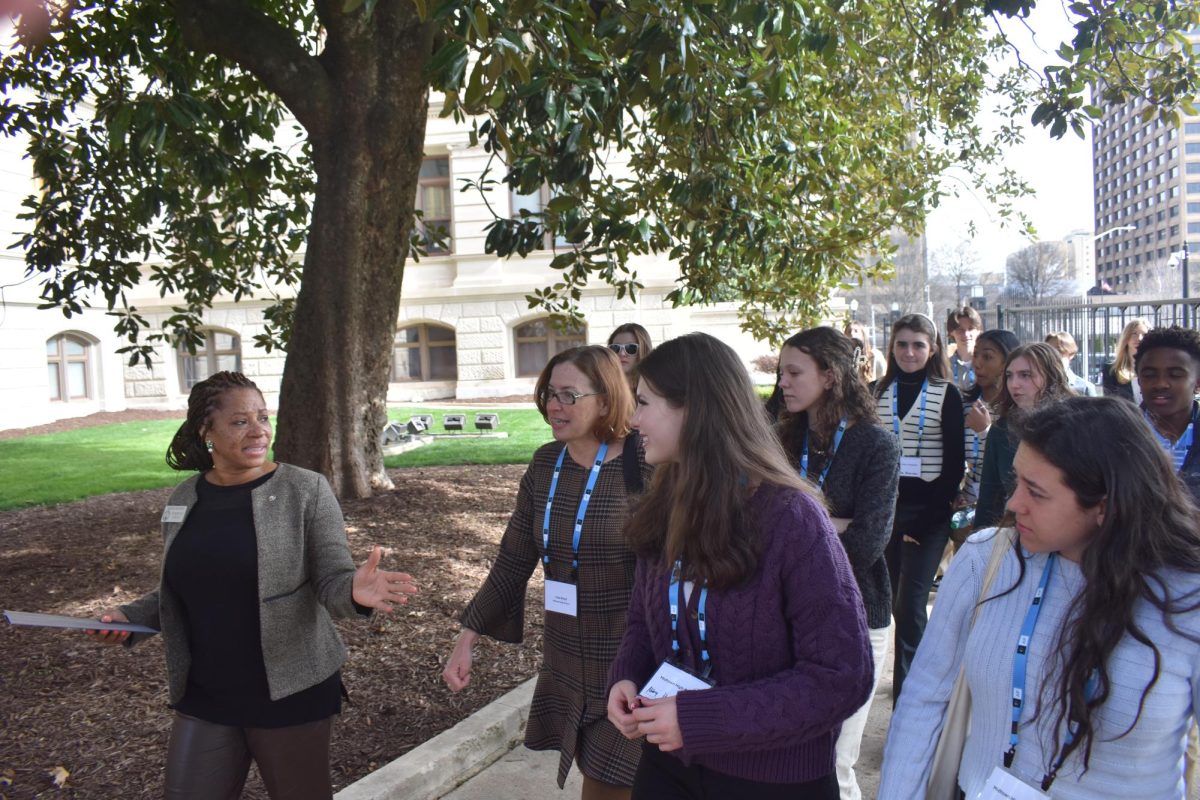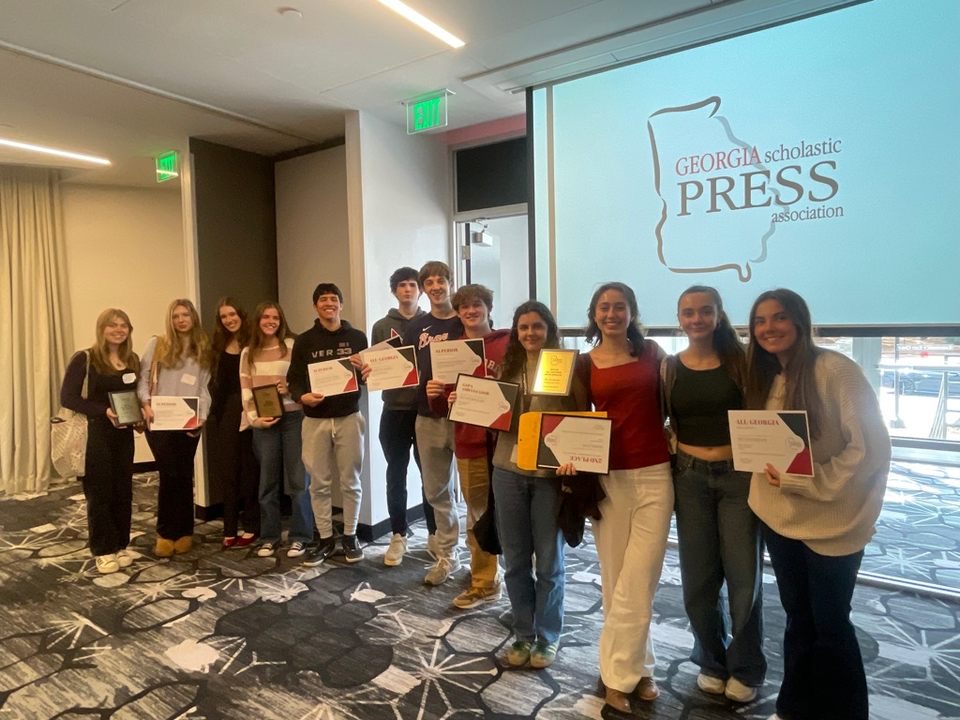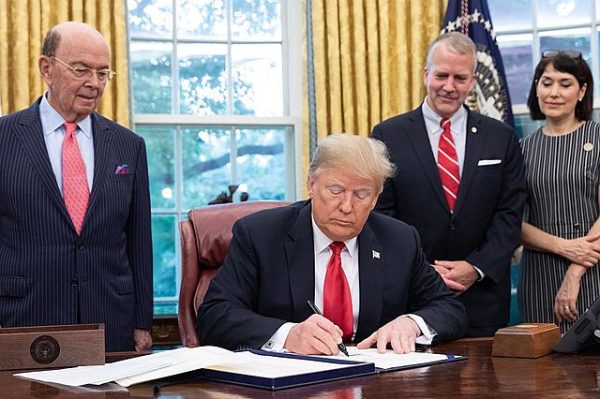Gubernatorial debate effectively clarifies platforms, features Libertarian candidate
Democratic candidate Stacey Abrams, Libertarian Shane Hazel, and Republican Governor Brian Kemp (left to right) answered questions and discussed policy issues during the Oct. 17 debate.
October 18, 2022
Republican Governor Brian Kemp and Democrat Stacey Abrams faced off on Oct. 17 in a debate hosted by the Atlanta Press Club. Unlike many so-called political “debates,” the event produced significant policy discussions and clarified the positions of the candidates.
During the debate, Kemp and Abrams both returned to the same talking points. Kemp primarily focused on his track record as Governor, taking every opportunity to discuss lifting pandemic restrictions which he credits as responsible for strengthening Georgia’s business environment and improving results for students. Kemp also said he would not expand abortion or birth control restrictions beyond the restrictive “Heartbeat Bill” which bans abortions as early as six weeks, clarifying a position he has previously made vague responses about.
Meanwhile, Abrams claimed that Kemp had harmed Georgia’s hospital system and education by restricting topics in schools and not increasing funding enough. She repeatedly told voters that her “math checks out,” claiming that federal funding would enable her to direct more money to hospitals and schools. Abrams’ biggest weakness was her inability to effectively explain how she would follow through on campaign promises with the Republican-controlled state legislatures, which would be her biggest obstacle if elected. Additionally, brams referenced times that she worked across the aisle as a state legislator, but did not acknowledge that the legislature would likely oppose her policies.
One of the largest points of contention seemed to be over crime and gun restrictions. Kemp tried to portray Abrams as anti-law enforcement, using his questioning time to ask Abrams how many sheriffs supported her. He repeatedly brought up “gangs” and “street racers” as the main problems with security and, trying to appeal to his base, claimed that fentanyl from Mexico was a significant threat. Abrams, meanwhile, attempted to balance supporting existing law enforcement and criminal justice reform.
Both candidates also expanded on their platforms in regard to elections. Abrams, responding to questions regarding her non-concession speech in 2018, promised to expand voter access. Kemp supported better access as well, referring to statistics regarding election participation in 2020, but also defended certain restrictions as necessary to protect election integrity.
Former President Trump, who has been involved in close races across the country, was noticeably absent in the debate, with neither candidate focusing on the Trump presidency. Trump has repeatedly criticized Abrams and endorsed David Perdue in the Republican gubernatorial primary instead of Kemp.
Perhaps most notably, Abrams and Kemp were joined on stage by little-known Libertarian candidate Shane Hazel. Hazel’s presence was a win for voters dissatisfied or disinterested in the American two-party system. However, his speaking time was limited by the format of the debate. The moderator granted rebuttal time whenever a candidate was called out in an opponent’s speech, most of the rebuttals went to Kemp and Abrams, who focussed on each other’s platforms and ignored Hazel for the most part. Kemp and Abrams also received significantly more questions from the panel than Hazel. Hazel, however, did not use the time he did have effectively, referencing political theory that most voters will be unfamiliar with. He also advocated for extreme Libertarian policies such as no public schooling, legalization of all drugs, and no gun restrictions, repeatedly claiming that most Georgians were peaceful and harmed by the government. His strongest point came during a question about elections when he accused both Democrats and Republicans of maintaining the two-party system and hindering third-party candidates.
Most viewers of the debate who were previously unsure have likely made up their minds. In the debate, both Abrams and Kemp clarified their platforms and made appeals to moderate voters. Abrams will likely be hurt by the absence of President Trump and may not be able to capitalize on the opposition to Trump that helped Senators Jon Ossof and Raphael Warnock win their races in 2020. Voters may also now be aware of more options beyond the Democratic and Republican parties.

